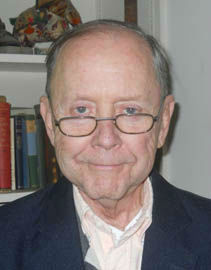
Culture
We live in times of aggressive, soul-deadening secularization that has affected many people for the worse.

Shaw
It happens every year on Ash Wednesday. In our downtown parishes, women and men, old and young, office and construction workers, corporate lawyers, police officers, messengers, and many others cut short their lunch hours and stream up the aisles to have a cruciform smudge of ashes planted on their foreheads. It's a yearly reminder that Catholicism is perhaps most successful in attracting people when, without making much fuss about it, it offers something that, on some deep and not necessarily well understood level, many and diverse individuals actually want.
So, streaming up the center aisle and the side aisles they come, to receive the ashes and hear the words. What words are those? The older version, still in use, is, "Remember that you are dust, and to dust you shall return." The newer one says, "Repent, and believe in the Gospel."
Of the two versions, I prefer the older one, and I suspect quite a few other people feel the same. Yes, repenting and believing in the Gospel is a very good thing to do. But the older version seems somehow better suited to the occasion, when the repetition of that word "dust" -- as if to rub it in -- serves as an acerbic reminder of a hard truth that many of those people streaming up the aisles actually want to hear, in the awareness that it's sometimes a salutary thing to hear the blunt truth spoken to them.
There are in fact two great formulas which, taken together, sum up human life. The first occurs in the first chapter of Genesis and its account of God's creation of humankind: "So God created man in his own image, in the image of God he created him; male and female he created them" (Gen.1: 27). The other comes with that smudge of ashes on the forehead: "You are dust, and to dust you shall return."
Thinking about these things, I recalled the enigmatic conclusion of Walker Percy's National Book Award-winning novel, "The Moviegoer." Sitting outside a Catholic church in New Orleans, narrator Binx Bolling sees a Black man park his car and go in. It is Ash Wednesday, Binx recalls. A few minutes later the man comes back out, evidently having received his ashes. And watching him, Binx speculates on what it was that brought him here:
"Is it part and parcel of the complex business of coming up in the world? Or is it because he believes that God himself is here at the corner of Elysian Fields and Bon Enfants? Or is he here for both reasons: through some dim dazzling trick of grace, coming for the one and receiving the other as God's own importunate bonus?
"It is impossible to say."
We live in times of aggressive, soul-deadening secularization that has affected many people for the worse. Years ago, the distinguished theologian Romano Guardini, writing immediately after the Chamber of Horrors that historians call World War II, explained what needed to happen. Man, he wrote, has to "regain his right relation to the truth of things, to the demands of his own deepest self, and finally to God. Otherwise, he becomes the victim of his own power, and the forecast of 'global catastrophe' . . . Will really become inevitable."
That's a large order of course. But those people who stream into the churches to have a smudgy cross traced on their foreheads testify to an enduring faith that still resides deep in many hearts. So, cheer up -- it's Ash Wednesday again, with Easter not far behind.
- Russell Shaw is the author of more than twenty books. He is a consultor of the Pontifical Council for Social Communications and served as communications director for the U.S. Bishops.
Recent articles in the Culture & Events section
-
What is truth?Michael Reardon
-
The 75th anniversary of St. Ignatius of Loyola Church, Chestnut HillThomas Lester
-
The most important prayer you already knowLaura Kelly Fanucci
-
Two years after DobbsRussell Shaw
-
Scripture Reflection for July 21, 2024, Sixteenth Sunday in Ordinary TimeDeacon Greg Kandra





